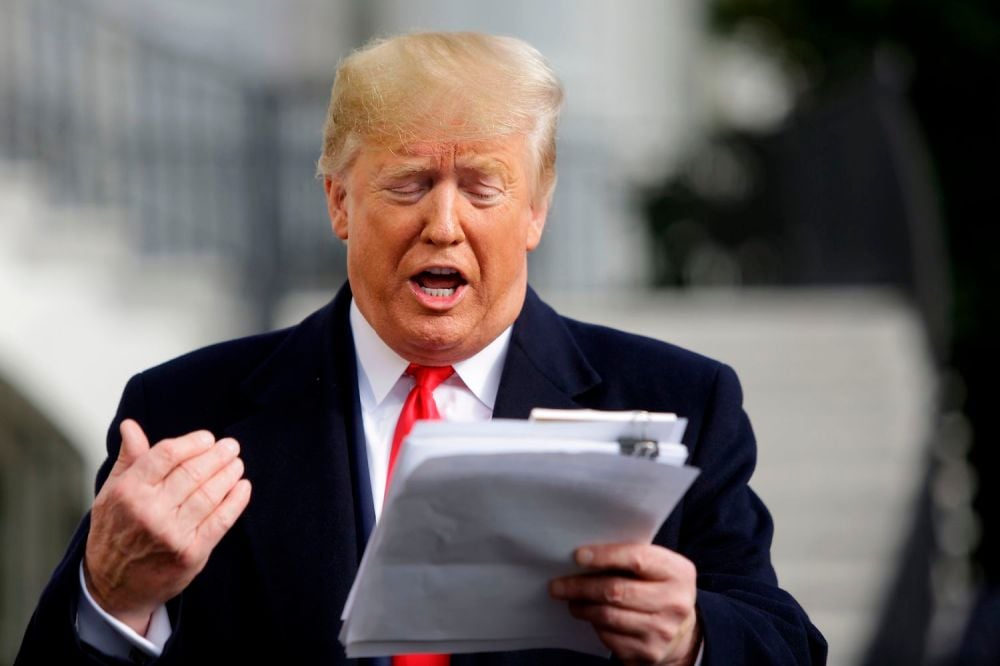Unveiling the Lessons: What Donald Trump’s History Teaches Us Today
As we navigate the complexities of contemporary politics, the historical lens through which we view former President Donald Trump’s tenure offers insightful lessons. His approach to governance, communication, and public engagement can be dissected to reveal broader themes that resonate within today’s political landscape. By examining pivotal moments during his presidency and actions leading up to it, we can glean lessons that not only reflect on the past but also inform the future.
Understanding the Impact of Communication
One of the most significant lessons from Donald Trump’s history is the power of communication, particularly in the digital age. Trump’s use of social media, especially Twitter, transformed political discourse. He bypassed traditional media outlets to speak directly to the public, a strategy that shifted the dynamics of political communication.
- Direct Engagement: Trump’s tweets often served as a tool for immediate connection with his supporters, allowing him to control the narrative and respond to criticism in real-time.
- Mobilization of Support: His ability to rally supporters through social media illustrates how digital platforms can energize a political base and create movements.
- Polarization: However, this direct engagement also heightened polarization, showcasing how communication can be a double-edged sword in politics.
Today, politicians and public figures must consider the implications of their communication strategies. Trump’s history teaches us that while direct communication can foster loyalty and engagement, it can also lead to division if not handled carefully.
The Role of Populism in Modern Politics
Trump’s rise to power highlighted the significance of populism in modern politics. He positioned himself as a voice for the “forgotten” Americans, capitalizing on sentiments of disenfranchisement and frustration with the political establishment. This populist approach has become a blueprint for many contemporary politicians.
- Connecting with the Base: Trump’s ability to resonate with working-class voters showcases the importance of understanding and addressing the concerns of specific demographics.
- Critique of Elitism: His narrative often centered around an anti-establishment stance, appealing to those who felt marginalized by traditional political elites.
- Lessons in Authenticity: Trump’s persona, often viewed as brash and unfiltered, resonated with many who valued authenticity over political correctness.
As we observe current political figures, the lesson here is clear: understanding the electorate’s sentiments and positioning oneself as an authentic voice can be a powerful tool in garnering support.
Lessons on Governance and Decision-Making
Trump’s governance style, characterized by an unconventional approach, offers valuable insights into decision-making processes. His reliance on instincts rather than established protocols often led to swift, sometimes controversial decisions.
- Agility in Decision-Making: Trump’s ability to make quick decisions highlights the importance of agility in governance, especially in times of crisis.
- Consequences of Impulsiveness: While decisiveness can be beneficial, Trump’s impulsive decisions often sparked backlash, reminding us that careful consideration is crucial in leadership.
- Influence of Advisors: The role of advisors in shaping decisions became evident during Trump’s presidency, underscoring the need for a diverse and competent advisory team.
Modern leaders can learn from Trump’s approach: the balance between decisiveness and thoughtful deliberation is key to effective governance.
The Importance of Economic Policy and Trade
Trump’s emphasis on America-first policies, particularly regarding trade and economic strategy, serves as a lesson in prioritizing national interests. His administration’s approach to trade agreements and tariffs reshaped discussions on globalization.
- National Interests First: Trump’s focus on protecting American jobs and industries resonates with voters who prioritize local economic stability.
- Trade Wars: The consequences of trade wars, especially with China, illustrate the complexities and potential fallout of aggressive economic policies.
- Global Supply Chains: The pandemic has further highlighted the vulnerabilities in global supply chains, emphasizing the need for strategic economic planning.
In today’s interconnected world, the lessons from Trump’s economic policies remind us of the delicate balance between promoting national interests and engaging in global trade.
Impacts on Political Norms and Values
Trump’s presidency has undeniably altered political norms and values in the United States. His approach has sparked debates about integrity, accountability, and the role of civility in politics.
- Redefining Norms: Trump’s disregard for certain political norms has led to a reevaluation of what is considered acceptable behavior in office.
- Accountability in Leadership: Questions surrounding accountability have become more pronounced, prompting discussions about transparency and ethical governance.
- Engagement in Civic Discourse: The polarized climate necessitates a renewed commitment to civil discourse and respect, regardless of political affiliation.
As we reflect on Trump’s impact, the call for higher standards of political conduct and integrity remains crucial for the health of democracy.
Conclusion: Lessons for the Future
Donald Trump’s history offers a rich tapestry of lessons that can shape our understanding of today’s political environment. From the power of communication and the rise of populism to the intricacies of governance and economic policy, these insights are invaluable for current and future leaders.
As we move forward, it is essential to apply these lessons with a critical eye. By recognizing the complexities of leadership and the responsibilities that come with it, we can strive for a political landscape that is more inclusive, respectful, and effective. Ultimately, the lessons learned from Trump’s history are not just about reflecting on the past; they are about forging a path toward a better future for all.
See more BBC Express News

